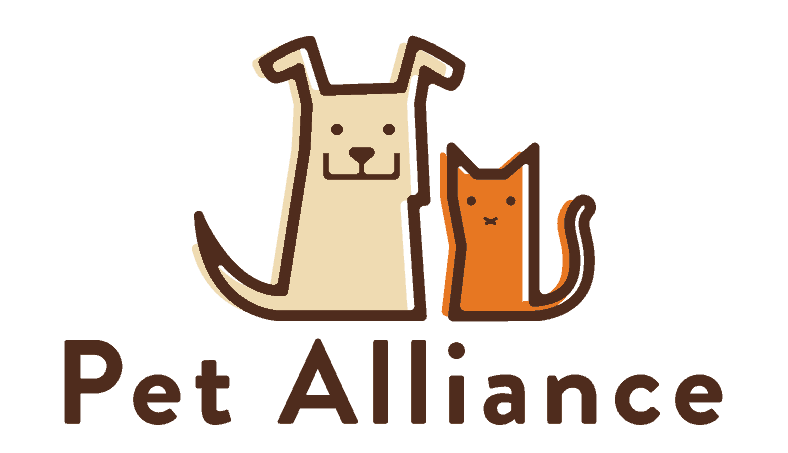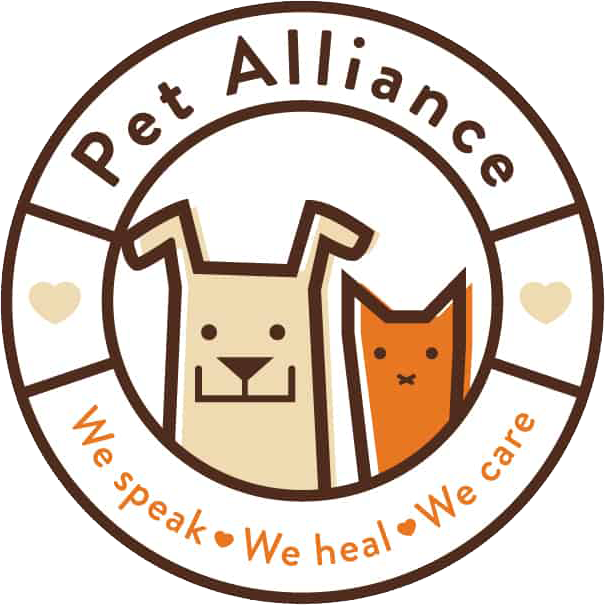Wednesday, July 12, 2017 Update
Pet Alliance of Greater Orlando is excited to announce that dog adoptions at our Orlando facility will be reopening at 12pm on Thursday, July 13. Adoption fees for the 48 dogs have been sponsored by Franklin’s Friends.
Intakes will remain closed at the Orlando facility as we focus on our dogs that have had an extended stay with us. We expect to resume intakes shortly.
Wednesday, July 5, 2017 Update
Good news to report – All of the dogs are recovering nicely. They are barking, eating and getting a little restless we are sure! Better news- 5 of the infected dogs have already begun testing negative. All the dogs will need two consecutive negative tests before they can go back up for adoption. The testing is being conducted through our partnership with University of Florida’s Maddie’s Shelter Medicine Program.
Dog adoptions remain closed at the Orlando shelter, but are still available at our Sanford shelter. Check our website for offsite adoption events around town including PetSmart Lake Mary. Cat adoptions remain available at all locations.
Thanks to Franklin’s Friends, we vaccinated 650 dogs for free. Response has been overwhelming and we have no more free vaccines. However, we are offering the vaccine for $20 (cost includes the initial and booster shot) with appointments currently available through August. Call 407-351-7722 to schedule an appointment.
Wednesday, June 28, 2017 Update
Pet Alliance of Greater Orlando’s shelter at 2727 Conroy Rd currently has 8 dogs that have confirmed cases of the H3N2 virus. Additionally, 39 dogs are showing symptoms related to this flu like virus. All of our dogs are responding positively to the antibiotic treatment. Dog adoptions remain closed at the Orlando shelter, but are still available at our Sanford shelter. Cat adoptions remain available at both locations.
Additionally, we are partnering with Franklin’s Friends, a Central Florida animal welfare non-profit, to provide free canine flu vaccines to the public. Franklin’s Friends generously donated funds for 400 dogs to receive the H3N2 vaccine. The initial and booster shots are needed for the vaccine to be effective. The booster will be given 3 weeks after the initial one. This free vaccine is by appointment only, Monday through Saturday at both our Orlando and Sanford clinics. Call 407-351-7722 to schedule an appointment.
No walk-in patients are being accepted at either clinic location until further notice. Please call us to make an appointment.
Thank you to everyone that has donated canned dog food. The response has been incredible. At this time, we have enough canned dog food to support the dogs in our care.
The next update will be made available on this page on Wednesday, July 5th.
Original Story – June 23, 2017
Pet Alliance of Greater Orlando has confirmed two dogs with the H3N2 virus in the Orlando shelter location at 2727 Conroy Road. Additionally, 29 dogs have symptoms related to this flu like virus.
We will suspend dog adoptions in our Orlando location until further notice. We are still adopting cats from our Orlando location. Also, our Sanford location is open for dog and cat adoptions.
We expect all of the dogs to fully recover but treatment will take a few weeks. We are reaching out to those that adopted a dog from our Orlando shelter since June 7th.
On Sunday, June 25 from 9am-12pm, we’re offering the initial H3N2 Flu vaccine at our Orlando shelter for only $10. This will be inside of our Mobile clinic in the parking lot of our Orlando facility.
We have a limit of 200 vaccines available to the public. No appointments will be taken. This is first-come, first-served. A booster shot will also be required ~3 weeks after the initial vaccination. Other vaccinations are also available.
The vaccine is a two-injection process that takes between 3-4 weeks to establish immunity.
If your dog is coughing and lethargic, we recommend you visit your veterinarian for testing and antibiotic treatment.
While H3N2 is highly contagious, it is also highly treatable.
Things to know about the H3N2 Virus
- What is H3N2 Canine Influenza Virus?
H3N2 canine influenza virus (H3N2 CIV) is a very contagious influenza virus that infects dogs. This virus emerged in the US in 2015. H3N2 CIV has also infected cats in shelters, but this may not be a common occurrence. There is no evidence that this virus can infect people.
- What does H3N2 CIV cause?
H3N2 causes a respiratory infection in dogs that looks like “kennel cough.” Common symptoms include sneezing, nasal discharge, and frequent coughing that can last for 2 weeks or more. Dogs may have a fever, decreased appetite, and lethargy during the first few days of illness. Some dogs develop pneumonia and may require hospital care.
The virus is easily killed by most disinfectants, handwashing with soap and water, normal laundering of clothing and bedding, and washing food/water bowls and toys with soap and water.
- How do dogs get H3N2 CIV infection?
H3N2 is spread by direct contact with a sick dog and by contact with an environment or people that are contaminated with the virus. Coughing dogs produce virus-containing mists that can travel 20 feet or more in the air, facilitating virus dissemination over distances.
- How are H3N2 CIV-infected dogs treated?
Fortunately, most dogs recover in about 2 weeks without complications. Since canine influenza is a viral infection, treatment is mainly supportive. Secondary bacterial infections are very common and can be treated with an antibiotic such as doxycycline. However, some infected dogs progress to pneumonia within the first week of illness. These dogs may have a fever, not eat, are lethargic, and have rapid or labored breathing. The pneumonia can be life-threatening without proper veterinary care in a hospital.
- Is there a vaccine for H3N2 CIV?
Just like human flu vaccines, the H3N2 vaccine may not completely prevent infection but will make it less likely. The H3N2 vaccines contain killed virus so they cannot cause disease. Two doses of vaccine must be given for optimum immune response – the doses are administered over a 2-to 3-week period and establish immunity within 1 to 2 weeks after the second dose.
- Is diagnostic testing necessary if I strongly suspect canine influenza?
Yes. Diagnostic testing must be performed to rule out infection with other more commonly occurring respiratory viruses and confirm infection with H3N2. The best diagnostic test for respiratory pathogens is PCR performed on swabs collected from the nose and throat of sick dogs.
- What can I do if H3N2 CIV is confirmed by diagnostic testing?
- Contagious time = 3 to 4 weeks
- Most dogs become infected if exposed
- Most sick dogs recover in about 2 weeks with no further health complications
- H3N2 is readily killed by common disinfectants
The information provided was developed from:

